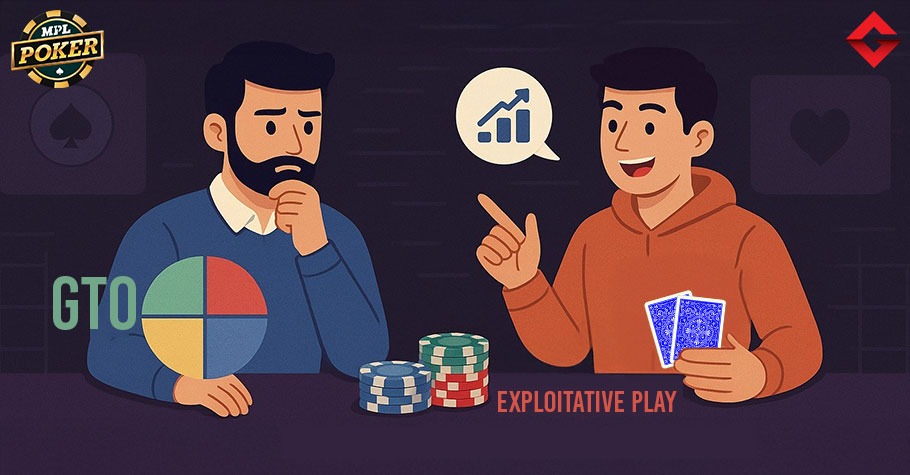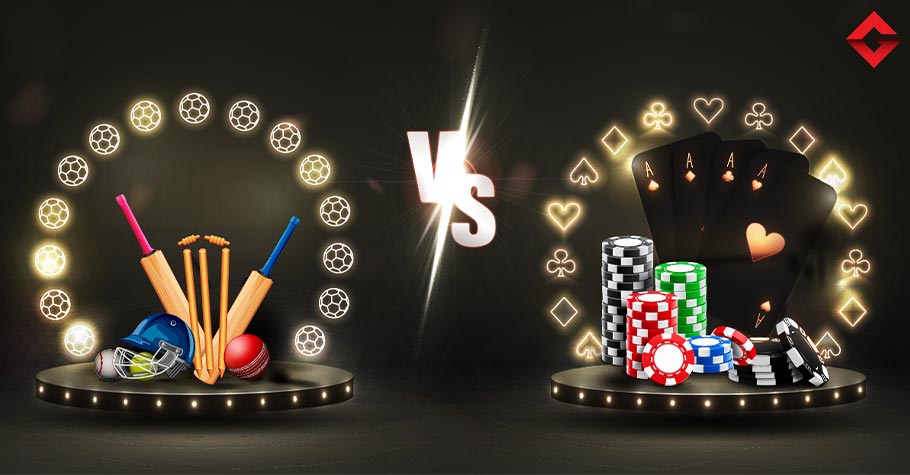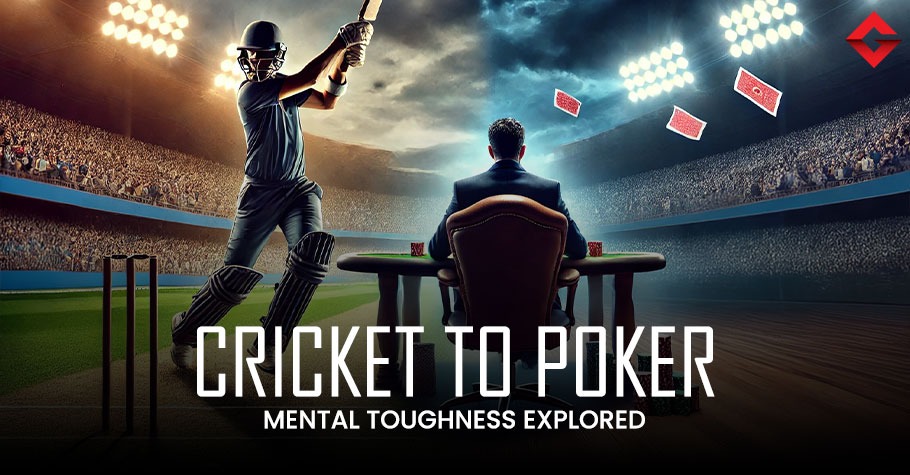 Poker
Poker
Mastering GTO vs. Exploitative Play Strategy On MPL Poker MTTs
In the world of poker, particularly in Multi-Table Tournaments (MTTs) on platforms like MPL Poker, players are often torn between two primary strategies: Game Theory Optimal (GTO) and exploitative play. Understanding when to use each strategy can significantly impact your success in tournaments.
What is GTO in poker?
Game Theory Optimal (GTO) strategy involves playing in a way that makes you unexploitable to your opponents. This means making decisions that are mathematically balanced, ensuring that no opponent can take advantage of your play. For example, if you always bet a certain amount with both strong and weak hands, your opponents cannot easily determine the strength of your hand.
Bluffing Frequency
In a GTO strategy, you might bluff to keep your opponents guessing. However, if you notice that a particular opponent rarely calls large bets, you can increase your bluffing frequency against them, deviating from GTO to exploit their tendency to fold.
What is Exploitative Play?
Exploitative play, on the other hand, implies adjusting your strategy to exploit the weaknesses and trends of your opponents. This involves deviating from GTO to maximise your profit by exploiting the specific behaviours of the players at your table. For instance, if you notice that an opponent frequently folds to large bets, you might increase your bluffing frequency against them.
Bet Sizing
GTO might suggest a standard bet size for certain situations. But if you observe that an opponent reacts differently to various bet sizes, you can adjust your bet sizes to exploit their reactions. For example, if they fold to large bets but call small ones, you can bet bigger with your bluffs and smaller with your value hands.
ALSO READ: Master Advanced Player Profiling On MPL Poker
Finding the Balance
When to Use GTO
Using GTO is particularly effective against strong, experienced players who are less likely to make significant mistakes. By maintaining a balanced strategy, you minimise the risk of exploitation. For example, in the early stages of MTTs, where you might encounter regular players, adhering to GTO can help you maintain a solid foundation.
When to Use Exploitative Play
Exploitative play shines when you can identify and exploit the tendencies of weaker or more predictable players. In MPL Poker tournaments, where the player pool includes a mix of casuals and regulars, there are frequent opportunities to switch gears. For instance, if you notice a casual player who calls too often, you can adjust by value betting more frequently with your strong hands.
Mastering the Shift
Mastering the balance between GTO and exploitative play in MPL Poker MTTs is crucial for long-term success. By understanding when to stay balanced and when to deviate based on player tendencies, you can maximise your value and increase your chances of winning tournaments.
Eager to test these strategies? Dive into the unlimited action on MPL Poker and start mastering the shift that wins tournaments! Download the MPL Poker app on desktop and mobile to kickstart your poker journey and win big on cash tables and tournaments.
Newsletter Signup
Frequently Asked Questions (FAQs)
1. What is the difference between GTO and exploitative play in poker?
GTO (Game Theory Optimal) strategy involves playing in a way that makes you unexploitable by balancing your decisions mathematically. Exploitative play, on the other hand, involves adjusting your strategy to take advantage of the specific weaknesses and tendencies of your opponents.
2. When should I use GTO strategy in a poker tournament?
GTO strategy is particularly effective against strong, experienced players who are less likely to make significant mistakes. It helps you maintain a balanced approach and reduces the risk of being exploited, especially in the early stages of a tournament.
3. How can I identify when to switch to exploitative play?
You should switch to exploitative play when you notice specific tendencies or weaknesses in your opponents. For example, if an opponent frequently folds to large bets, you can increase your bluffing frequency against them to exploit this tendency.
4. What are some common mistakes to avoid when using exploitative play?
Common mistakes include over-adjusting to perceived weaknesses, not paying attention to changes in opponents’ strategies, and failing to revert to a balanced approach when necessary. It’s important to stay observant and adaptable.
5. How can I effectively practice balancing GTO and exploitative strategies?
Practice by playing in various poker tournaments and cash games, paying close attention to your opponents’ behaviours and adjusting your strategy accordingly. Reviewing hand histories and using poker software tools can also help you analyse and improve your decision-making process.

Rajashree is part of the business team at Gutshot Magazine, where she manages client relationships and strategizes promotional activities to maximize impact. She also contributes with articles on poker promotions, leveraging her expertise in audience engagement. When not brainstorming new ideas, you’ll likely find her quietly honing her calligraphy skills.
More News
Comments
Top 15 Poker Rooms
-
WPT Global
Grab your welcome offer
Offer: 100% of your deposit back up to $3,000 Register -
PokerDangal
Sign up with code GUTSHOT1
Offer: Get 100% GST discount on deposits Register -
Natural8 India
Sign-up with Gutshot
Offer: Get extra 28% on all deposits Register -
Spartan Poker
Sign-up with referral code AFFGSMAG
Offer: FTD 50% Bonus Money up to ₹20K. Deposit code ‘ALLIN50’ Register -
Junglee Poker
Sign-up and get bonus
Offer: Up to ₹50,000* Register -
Calling Station
Sign-up with promo code 'AFFCSGUT'
Offer: 30% FTD bonus with code FTD30 Register -
WinZo Poker
Daily Winnings Up To ₹40 Crore!
Offer: Get ₹550 Joining Bonus For Free Register -
Stake Poker
Welcome bonus
Offer: 200% up to ₹120,000 Register
Newsletter
Thank you for subscribing to our newsletter.
This will close in 20 seconds


























Leave a Reply